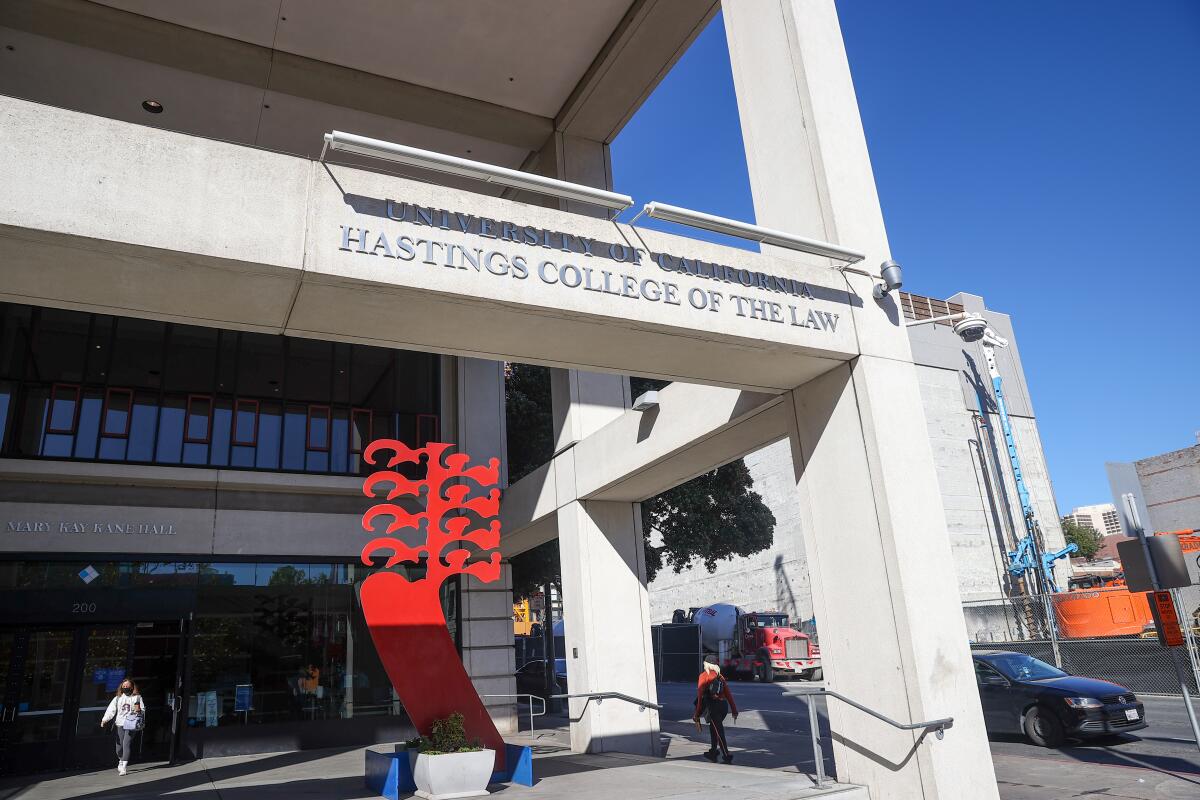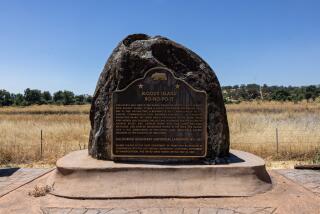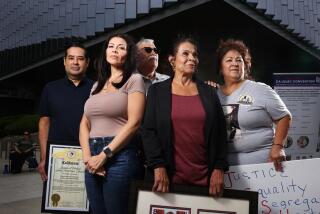Editorial: One question about renaming Hastings law school: What took so long?

There are times when the unnaming of a school or building and the stripping of an honor from someone with a less-than-purely-perfect past makes us shake our heads, such as when UC Berkeley pulled the name of respected anthropologist Alfred Kroeber off the Anthropology Department building despite his legacy of preserving Native American cultures and opposition to white chauvinism.
Other times it’s complicated. Thomas Jefferson was a slaveholder — but also an extraordinary statesman who was a leading advocate of the separation of church and state.
But when it comes to UC Hastings College of Law, which finally announced last week that it would take the first steps to shed the name Hastings, we can only wonder why it took several years.
There is no excuse for the likes of Serranus Clinton Hastings, the first chief justice of the California Supreme Court, who should have, but never did, face a judge himself over the deaths of Native Americans for which he’s responsible. Hastings orchestrated and financed multiple attacks on the Yuki Indians of Round Valley in Mendocino County that massacred close to 300 people, including women and children. He then took their lands for his own financial benefit.
With those questionably obtained gains, he donated $100,000 in gold coins to found the law college, the first law school in California. His misdeeds came to light in 2017, when an adjunct professor wrote an article about the man.
Hastings’ name is a dishonor to the law. Though he might not have looked at things this way, his actions amount to mass murder, genocide and grand theft. There is no possible way his name belongs even on an anthill, let alone an esteemed institution of legal education.
To their credit, once the truth was revealed, the law school’s leaders embarked on a series of joint projects with the Native Americans of that region, including a center specializing in legal affairs affecting Indigenous peoples in particular, and a possible partnership to provide free legal aid. Oddly, though, the school’s Chancellor and Dean David Faigman resisted changing the name in a lengthy memo that sounds like a tall pile of rationalization. Removing Hastings’ name wouldn’t accomplish anything, he wrote, and it could amount to erasing the history of his terrible deeds. The law school’s reputation is bigger than that of its founder — this much is true — and the loss of the name could result in the loss of donations, Faigman wrote.
As for not letting the story of Hastings’ crimes against humanity disappear, we don’t name anything after the many thousands of lesser-known evildoers throughout history so that people will learn about them.
Removing Hastings’ name would require an act by the Legislature, which should be the easiest vote it takes during its next session. It is surely less convenient to rename the law school. But justice and honor — neither of which are exemplified by Serranus Hastings — matter more than donations and convenience.
More to Read
A cure for the common opinion
Get thought-provoking perspectives with our weekly newsletter.
You may occasionally receive promotional content from the Los Angeles Times.










